MANAGING THE THREATS OF COVID-19 TO SEAFARERS' HEALTH AND WELL-BEING: RESPONSE OF THE PHILIPPINE MARITIME INDUSTRY (PHASE 1)
Amidst
the rising COVID-19 cases and the emerging variants of the virus, the problem
on crew change and the repatriation of seafarers are still being reported which
affect seafarers’ health and well-being. The global maritime industry and the
Philippine government have responded to address the threats of the pandemic
through various regulations and recommendations. This study focused on the
response of Philippine shipping companies in response to these regulations and
recommendations. It also examined the emergency preparedness plans of these
shipping companies taking into account five priority areas: information, assets
or resources, mobilization, consultation, and evaluation. The findings
indicated that Philippine shipping companies aligned their responses to address
the different threats of the COVID-19 pandemic to seafarers’ health and
well-being with the directives set by the national government as well as the
recommendations set by global maritime agencies and organizations. Moreover,
most of the actions they have taken addressed the physical and social threats
of the COVID-19 pandemic to Filipino seafarers. In addition, majority of
Philippine shipping companies have existing emergency preparedness plans, and
these plans are already being updated in light of the current and ongoing
pandemic. Finally, in considering priority areas for their emergency preparedness
plans, it was found out that the highest priority area was in information
dissemination while the least priority area was in the consultation with or the
involvement of stakeholders.
0 Comment(s)
Upcoming Event
Research Archives
- MANAGING THE THREATS OF COVID-19 TO SEAFARERS' HEALTH AND WELL-BEING: RESPONSE OF THE PHILIPPINE MARITIME INDUSTRY (PHASE 2)
- PHILIPPINE DOMESTIC MARITIME INDUSTRY'S COMPLIANCE WITH MLC, 2006: CHALLENGES OF IMPLEMENTATION
- ISSUES AND CONCERNS ON THE NON-RATIFICATION OF THE PHILIPPINES OF THE INTERNATIONAL CONVENTION ON STANDARDS OF TRAINING, CERTIFICATION AND WATCHKEEPING FOR FISHING VESSEL PERSONNEL (STCW-F)
- PHILIPPINE MARITIME MANPOWER FACTBOOK 2020 & 2021
- THE CAPACITY OF THE PHILIPPINE MARITIME INDUSTRY TO PRODUCE OFFICERS-IN-CHARGE (OIC) PER STCW REQUIREMENTS: FOCUS ON THE ONBOARD TRAINING (OBT) OF CADETS
- PHILIPPINE EMPLOYMENT LAWS RELATIVE TO SEAFARERS: FOCUS ON THE PHILIPPINE ARBITRATION SYSTEM AND AMBULANCE CHASING
- EMPLOYMENT ACCEPTABILITY OF WOMEN IN PHILIPPINE DOMESTIC SHIPS
- AUTONOMOUS SHIP TECHNOLOGY: ITS IMPLICATIONS TO PHILIPPINE MARITIME INDUSTRY
- REQUIRED NON-TECHNICAL (ESSENTIAL) SKILLS BY EMPLOYERS FOR SHIPBOARD EMPLOYMENT OF MANAGEMENT LEVEL OFFICERS
- PERCEPTION OF NMP FEMALE TRAINEES TOWARDS THE SEAFARING PROFESSION
- HARBOR PILOTAGE IN THE PHILIPPINES A REVIEW OF INTERVENTIONS IN LICENSING, APPOINTMENT AND CAPABILITY BUILDING OF HARBOR PILOTS
- NMP GENDER SENSITIVITY TRAINING FOR SEAFARERS (GSTS) COURSE: A PROGRAM EVALUATION
- SKILLS GAP ANALYSIS OF MARITIME FACULTY IN PHILIPPINE MARITIME HIGHER EDUCATION INSTITUTIONS
- RESPONDING TO THE FILIPINO SEAFARERS’ TRAINING REQUIREMENTS IN THE STCW 2010 MANILA AMENDMENTS: CHALLENGES AND OPPORTUNITIES
Subscribe to our Newsletter
Discover the latest upcoming and ongoing research. Don't forget to pre-register for the upcoming events.
Updates will be notified through your registered email to this portal.

